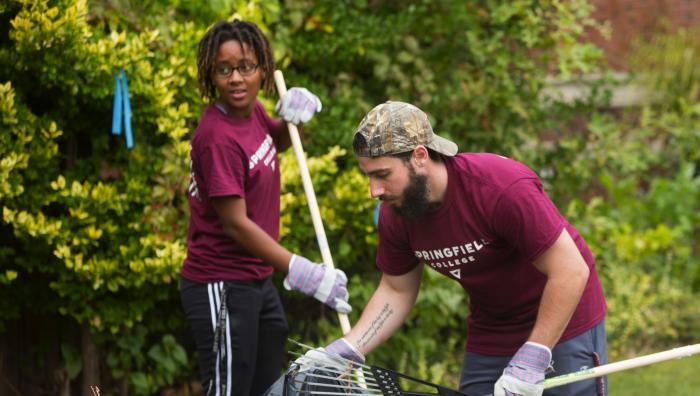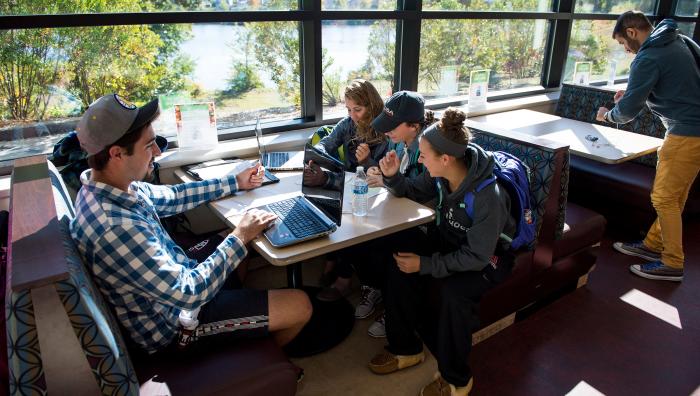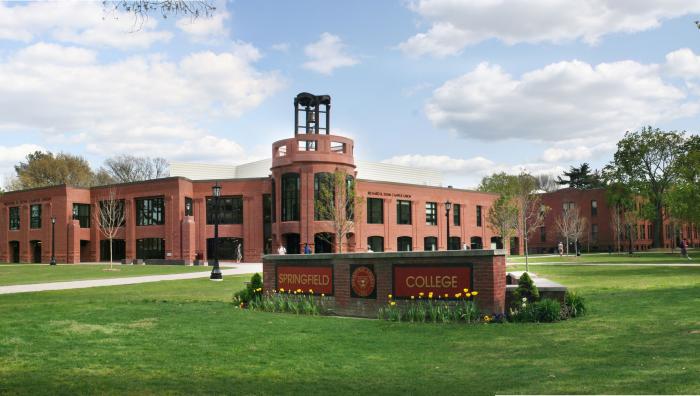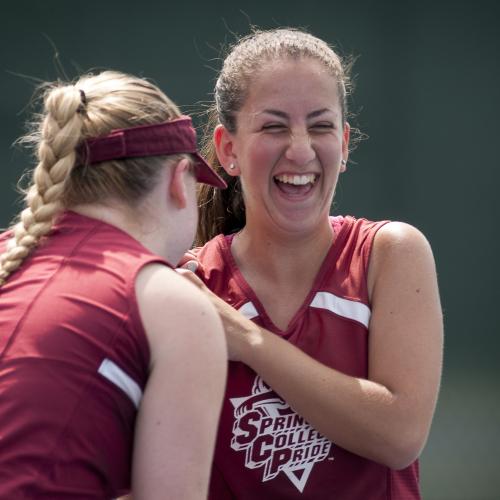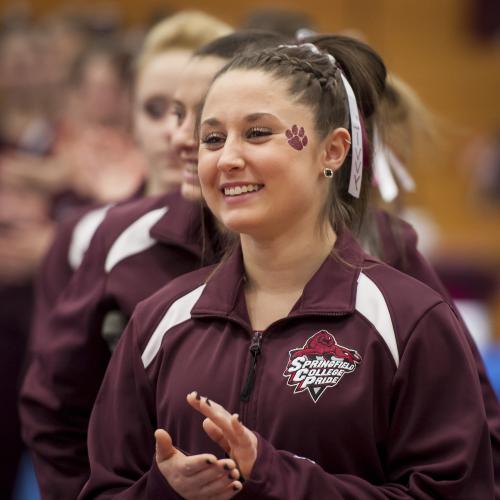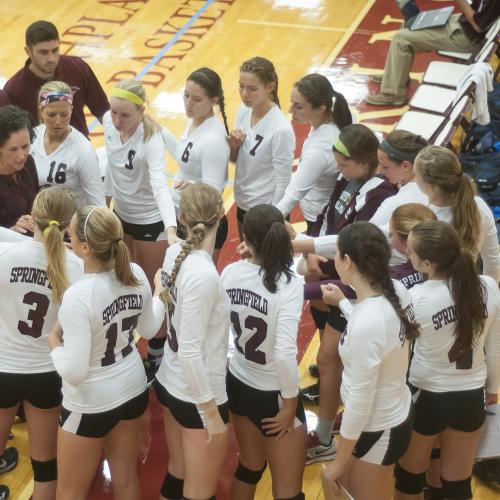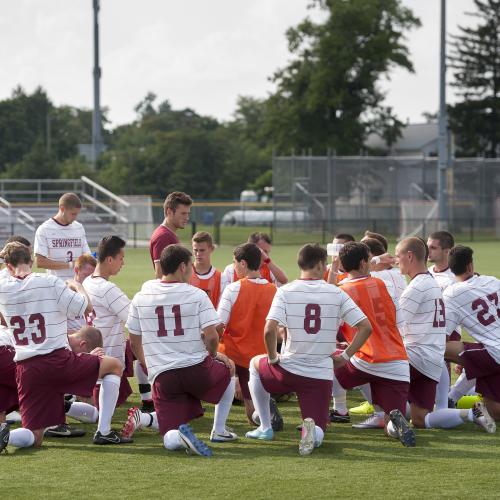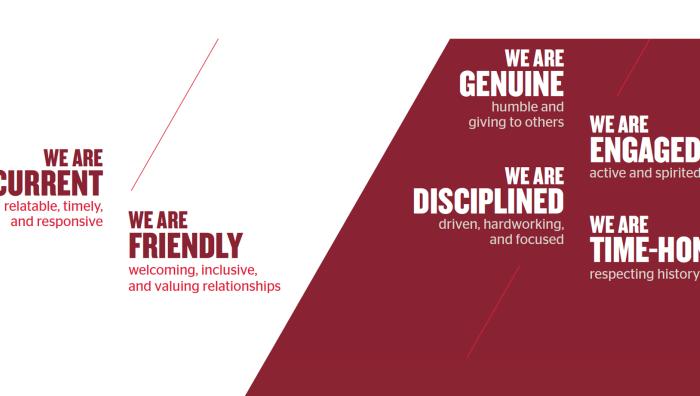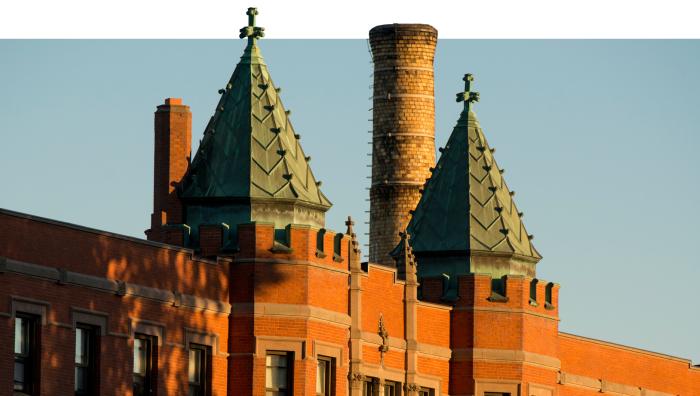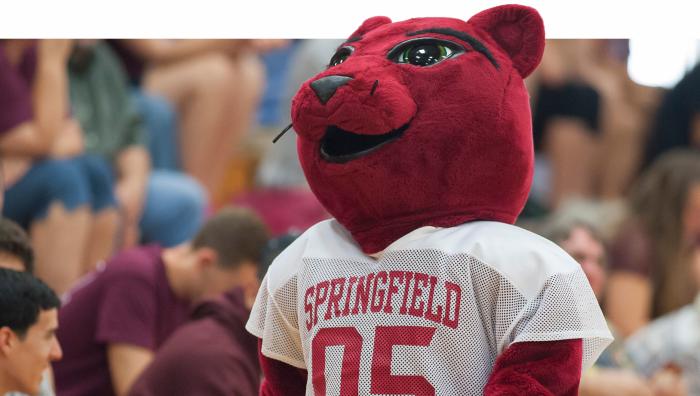Fast Facts
Springfield College is an independent, nonprofit, coeducational institution founded in 1885. The College serves undergraduate and graduate students at its campus in Springfield, Massachusetts, and online. Springfield College inspires students through the guiding principles of its Humanics philosophy – educating in spirit, mind, and body for leadership in service to others.
The College offers a range of undergraduate and graduate degree programs in the fields of health sciences, education, business, social work, and the arts and sciences.
With its foundation of academic excellence and rich athletic heritage, Springfield College prepares students with real-world leadership skills for careers that transform lives and communities.
Springfield College is designated as a premier Leadership Development Center by the YMCA of the USA.
Known as the Birthplace of Basketball, Springfield College is where the sport of basketball was invented. Springfield College graduate student James Naismith invented the game in 1891. Speaking of notable alumni, we have quite a few.
- William Morgan invented volleyball in 1894.
- John Cena is a philanthropist, actor, and professional wrestler.
- Marilyn Bevans was a champion marathon runner and the first Black American female to win the Maryland Marathon in 1977.
- Harold Amos, who earned a master’s degree and a PhD in the Division of Medical Services at Harvard University, was the first Black person to earn a doctoral degree from that division. He later served as a faculty member at Harvard Medical School for almost 50 years.
- Tom Waddell, an infectious disease specialist, competed in the decathlon in the 1968 Olympics and founded the Gay Games in 1982.
- Sue Petersen Lubow '75 was the first and only female athletic director at a U.S. federal service academy (U.S. Merchant Marine Academy)
- Erin Pac Blumert '03 won a bronze medal in the 2010 Olympic Winter Games on the U.S. bobsled team.
Academics Facts
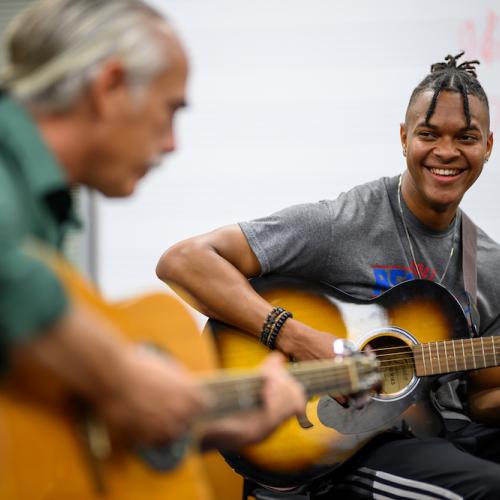
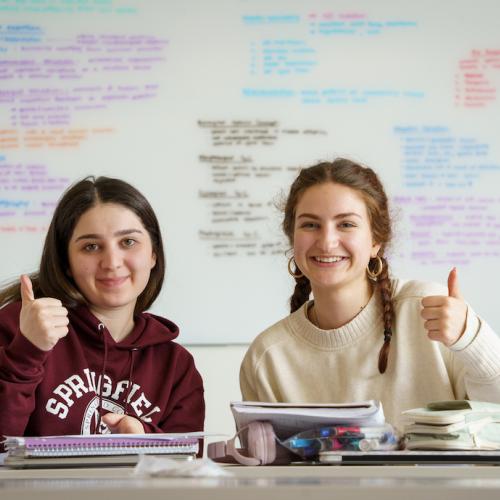
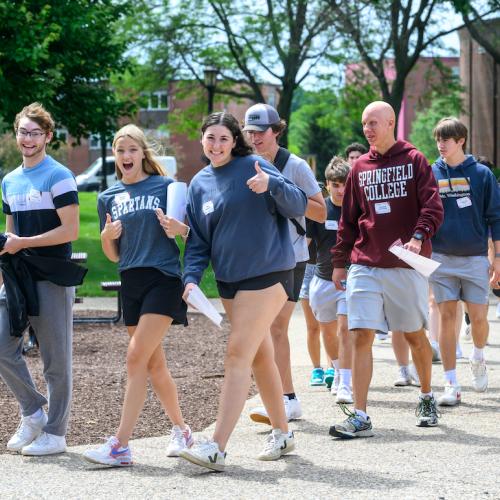
Athletics Facts
- All of our full-time head coaches also are professors and understand the academic rigors that our student-athletes face. In the 2025 spring semester, our nearly 675 student-athletes had a cumulative GPA of 3.535, with 103 earning a perfect 4.0 GPA.
- In 2024-25, Springfield College had 22 student-athletes earn All-America honors and 78 student-athletes were selected to All-Conference teams.
- Springfield College finished 65th nationally in the final overall standings of the 2024-25 Division III Learfield Directors’ Cup, marking the 16h-consecutive time the Pride has ranked in the top 100 of the 450 Division III athletic programs in the country.
- In 2025, for the ninth-consecutive year, a Springfield College student-athlete was chosen to participate in the NCAA Division III Student Immersion Program in conjunction with the NCAA Convention.
Successes and Initiatives
Health Sciences Center
The new state-of-the-art Brown Cooper Health Sciences Center opened in fall 2023 and provides our students pursuing degrees/careers in health sciences with the latest in research and leadership opportunities. With a booming health care field, the time was right to provide a facility that is the setting for everything from a space to design and create new health and wellness technologies to a learning-centered human anatomy laboratory to an operating suite with remotely observable examination and treatment rooms.
The Arts and Humanities Speaker Series has become a cornerstone for bringing diverse perspectives covering a range of topics to campus since 2014. Made possible by the generosity of Carlton ’63 and Lucille Sedgeley, the series provides an opportunity for the Springfield College campus and extended community to listen and learn about important issues of the day. Previous distinguished speakers in this series include paleoanthropologist, political advisor, and environmentalist Richard Leakey; author, poet, and screenwriter Sherman Alexie; Grammy Award-winning singer, activist, and humanitarian Angelique Kidjo; best-selling author, philanthropist, columnist, and sports reporter Mitch Albom; New York Times bestselling author Ibram X. Kendi; infectious disease expert Celine Gounder; and famed playwright, actress, and educator Anna Deavere Smith. Learn more about our past speakers.
College Mission and Humanics Philosophy
- Each year, Springfield College community members give approximately 120,000 hours of service.
- Springfield College students tutor and mentor 135 local youth each week on the College campus and in the local community through four different after-school programs facilitated by College student leaders.
- The Humanics in Action Club created and distributed 100 Birthday in a Box kits for the Gray House social service agency, 300 bag lunches for the Springfield Rescue Mission and Loaves and Fishes Soup Kitchen, and 50 April break activity backpacks for first graders at the William N. DeBerry School, all based in Springfield.
- Students recovered 1,665 pounds of food from Cheney Hall in 2023-24 as part of a club called the Food Recovery Network. This food, which would have been discarded, was repackaged and distributed on campus through the Mary Anne Coughlin Pride Pantry and to local residents by Rachel’s Table, a community-based nonprofit to address food insecurity.
- Fifteen students volunteered to help build homes through Habitat for Humanity during the 2023-24 academic year in North Carolina and in the local Springfield area community.
